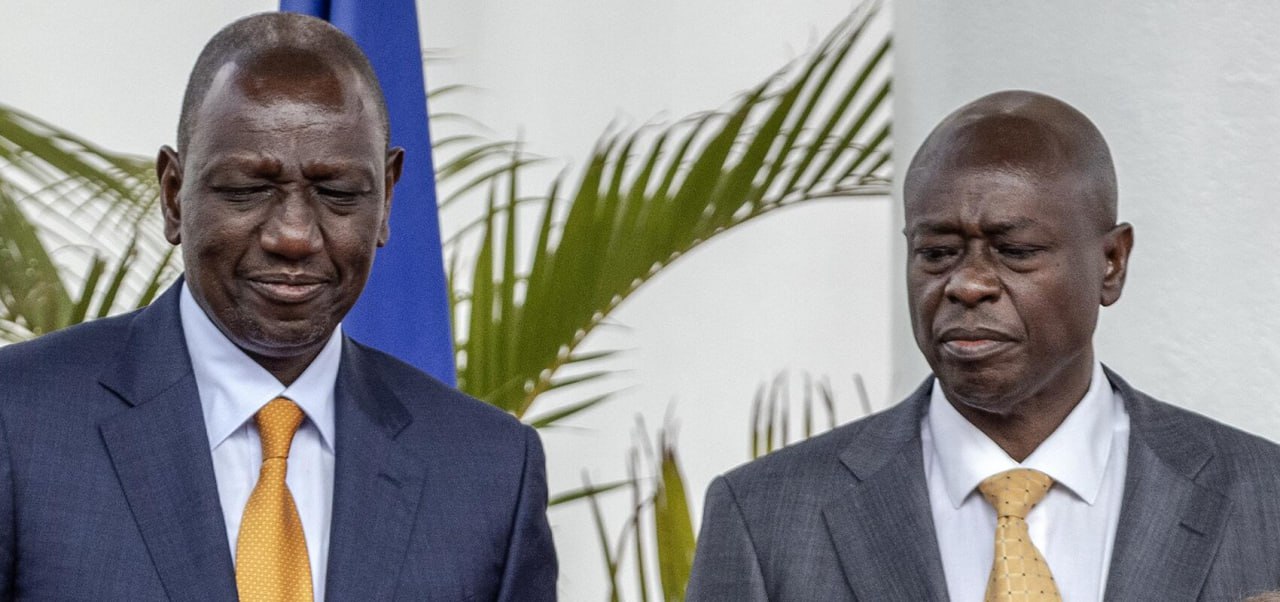Kenya’s High Court has rejected an appeal from Deputy President Rigathi Gachagua to halt ongoing impeachment proceedings, clearing the way for the country’s parliament to continue with its process. The ruling came after Gachagua petitioned the court, seeking to prevent the proceedings, which he claims are politically motivated.
Judge Chacha Mwita, who presided over the case, ruled that the High Court would not interfere in the impeachment process, citing the principle of separation of powers between the judiciary and the legislature. In his decision, Mwita acknowledged that the deputy president’s case raised significant legal issues, warranting further deliberation by a full bench. However, he emphasized that the judiciary could not halt parliamentary processes that fall within the bounds of legislative authority. According to local reports from The Nation newspaper, the judge made it clear that the constitution grants parliament the mandate to handle impeachment cases, and the courts should not obstruct that role.
This development means that the impeachment motion against Gachagua will now move to the upper house of parliament, the Senate, for consideration on October 16-17. If the Senate upholds the decision, Gachagua could face removal from office. The case has sparked intense public interest, with many Kenyans closely watching how the political drama unfolds.
The impeachment proceedings began after the lower house of parliament overwhelmingly voted to impeach Gachagua on October 8, accusing him of multiple offenses. Out of 349 lawmakers, 281 voted in favor of the motion, surpassing the two-thirds majority required to move forward with the impeachment process. The charges against Gachagua include allegations of corruption, abuse of power, insubordination, and undermining the government. Additionally, he is accused of promoting policies that exacerbate ethnic divisions in the country.
The most significant charge against Gachagua, however, is related to his wealth. Reports suggest that the deputy president has amassed a net worth of $40 million, despite earning an official annual salary of $93,000. Critics allege that Gachagua’s wealth is the result of corrupt dealings and the misuse of his position in government. In response, Gachagua has vehemently denied the accusations, claiming that his wealth comes from legitimate business ventures and an inheritance from his late brother. He insists that the charges are part of a politically motivated campaign to tarnish his reputation and remove him from office.
Gachagua, who took office as Deputy President in 2022, has been a controversial figure in Kenyan politics. His hardline stance on various issues and outspoken nature have often put him at odds with members of his own government, including President William Ruto. The deputy president’s relationship with Ruto has reportedly grown tense in recent months, with reports suggesting that Gachagua’s actions have undermined the unity of the ruling coalition.
The impeachment bid has also ignited broader debates about governance and accountability in Kenya. While some see the move as a necessary step towards holding high-ranking officials accountable for alleged wrongdoing, others argue that the process is being used as a tool for political power plays. For Gachagua’s supporters, the impeachment effort is seen as an unfair attack on a leader who has been vocal in addressing corruption and inefficiencies in government.














Leave a comment